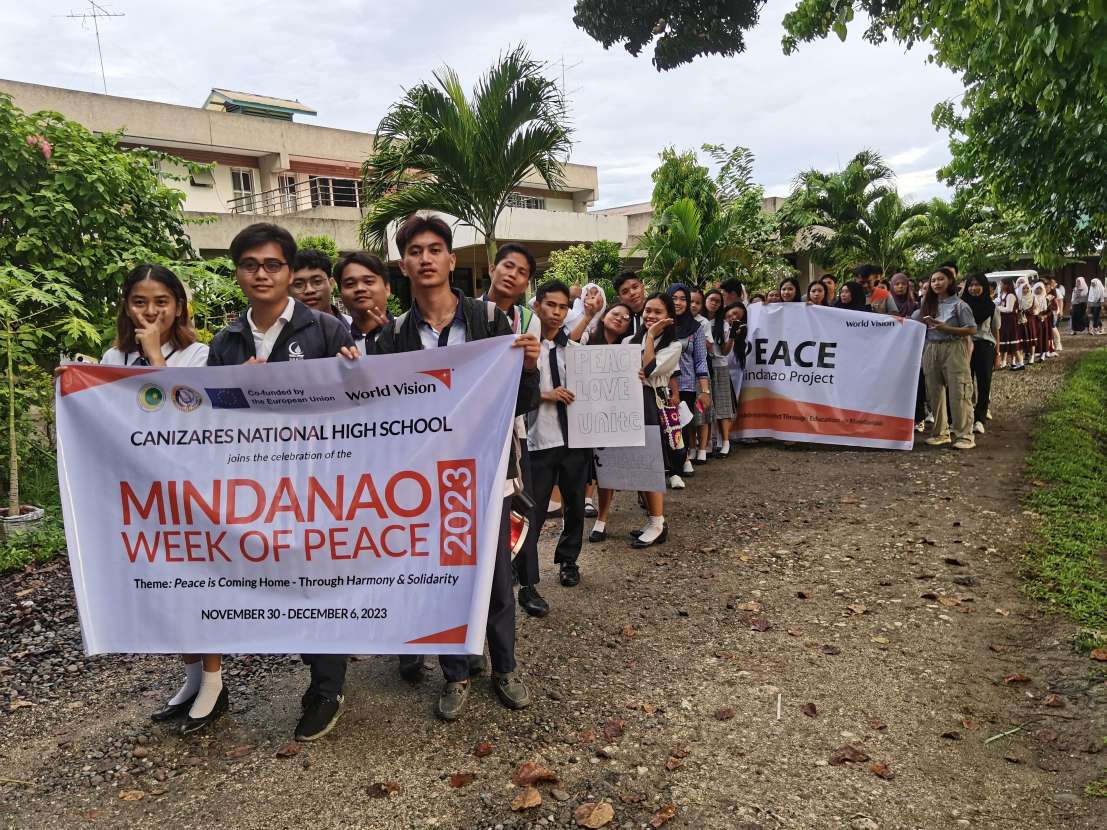QC Hotline Operators learn how to manage child related concerns through World Vision’s Project ACE
By: Pauline Giselle D. Navarro | World Vision Development Foundation Inc.
World Vision’s Project Against Child Exploitation (ACE) together with the local government of Quezon City (QC) are committed in ensuring that hotline 122 operators are equipped with necessary skills and knowledge to manage child abuse cases of children.
A total of 63 Hotline 122 operators joined the 2nd series entitled “Enhancing Technical Skills and Knowledge in Managing Cases of Children, Including Legal and Ethical Requirements” on February 28-29, 2024 in Quezon City.

QC Hotline 122 was established under the Radio Communications Service that aims to be the main communication service that can be accessed by the local government’s constituents who are in need of immediate assistance or attention. Through the years, it was able to serve QC citizens by responding to emergencies and urgent concerns. Now, the series of trainings are being conducted to equip hotline operators with the necessary skills and knowledge to interact with children in a supportive and empathetic manner while addressing their concerns effectively.
In her message, Project ACE Manager Anita Garcia highlighted that “everything has been entrusted to our protection, and all of us are responsible for it. Be protectors of God’s gifts, be protectors of the helpless, especially the children. Let us all stand Against Child Exploitation!”
Last November 15-16, 2023, Project ACE and QC Government gathered the hotline operators for the first series out of three trainings that aimed to enhance the knowledge of QC Hotline 122 Operators on child rights and child labor and familiarize operators with online sexual abuse and exploitation of children (OSAEC), enabling them to recognize warning signs and utilize the referral system effectively. During the training, hotline operators answered the training needs assessment to ensure that the subsequent training sessions are tailored to address the specific needs of operators, enabling them to effectively and sensitively handle calls from children.

Ms. Maricris Laureta, the Chief Labor and Employment Officer of Quezon City Public Employment and Services Office addressed the participants wherein she recognized the unwavering passion of the QC 122 Helpline Operators to help the QCitizens – especially the children. “Let us all aspire to have a Hotline 122 as a haven for child protection and child participation, a platform where children feel heard and supported,” she added.
Quezon City has been an active partner of World Vision in its programs and projects. In fact, World Vision through Project ACE, facilitated the signing of the memorandum of agreement between the local government unit and Council for the Welfare of Children (CWC) for the Makabata Helpline 1383 during the first series of the training last year.

The second series focused on two vital topics: Review of QC 122 Hotline Processes and Procedures in Handling Calls for the first session and Reports and Orientation of the Legal Proceeding and Ethical Aspects of Handling call or reports from Children for the second session.
Orientation of the Legal Proceedings and Ethical Aspects of Handling Calls or Reports from Children, which was presented by Atty. Omar Deloso, under the Compliant and Investigation Division of the National Privacy Commission focused on children’s rights and data privacy among others.
During the reflection portion, QC hotline operator Ms. Jenina Maei T. Racal expressed her gratitude mentioning that “thank you QC PESO and Project ACE because we have learned a lot from this training and we can use them as we handle reports from children especially those who are victims of OSAEC.”

The third series of the training will be conducted on March 12-13, 2024 that will discuss the Bantay Bata 163 hotline of ABS-CBN and stress management that will be conducted by the Department of Social Welfare and Development (DSWD).
Funding is provided by the United States Department of Labor under cooperative agreement number IL 34007-19-75-K. 100 percent of the total costs of the project in the Philippines is financed with United States Department of Labor funds.









